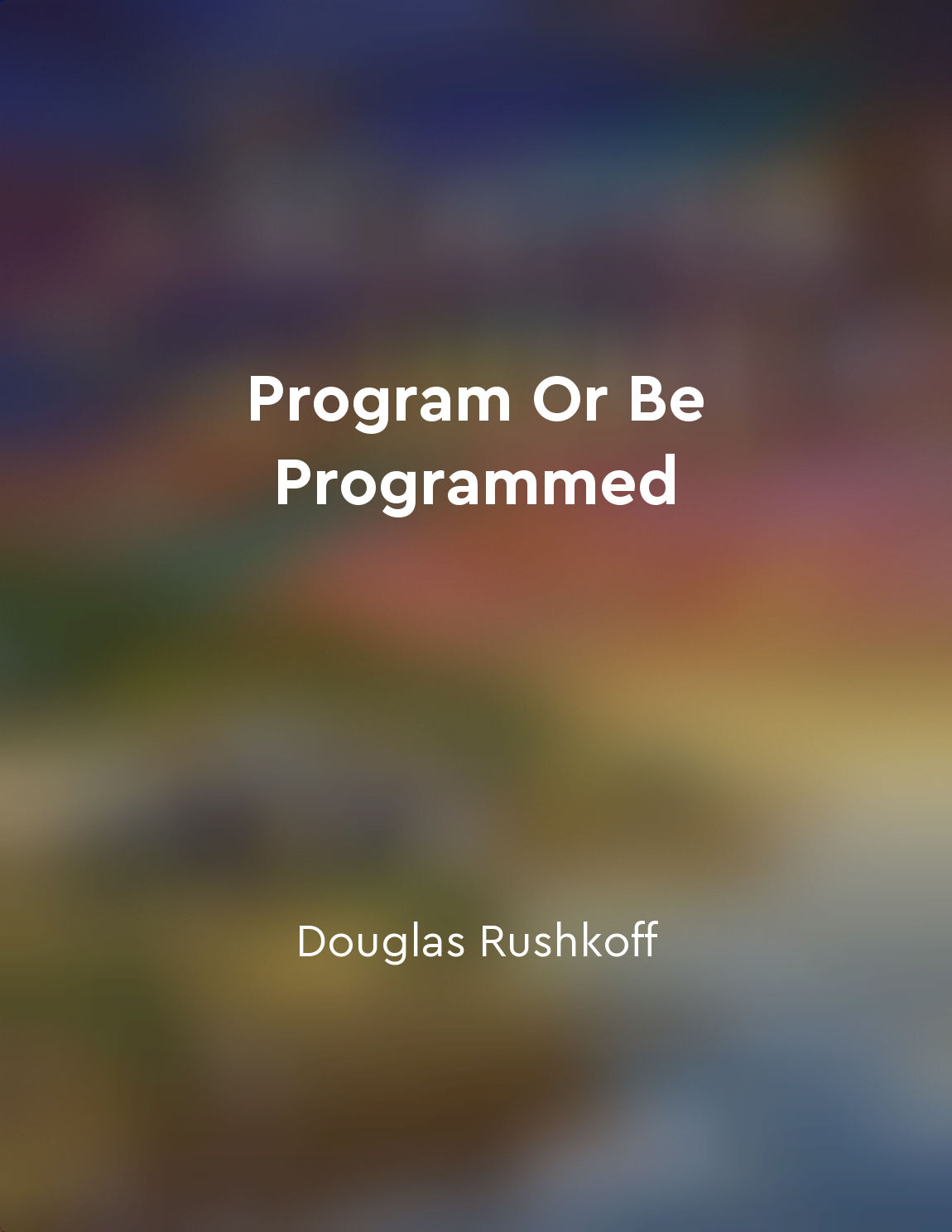Programming is a form of literacy that unlocks endless possibilities from "summary" of Program Or Be Programmed by Douglas Rushkoff
Programming is a form of literacy, like reading and writing, that allows us to communicate with machines. It enables us to give instructions to computers and create digital environments where we can interact and express ourselves. Just as learning to read opens up a world of knowledge and imagination, learning to code opens up a world of possibilities and opportunities in the digital realm. When we learn to program, we are not just learning a technical skill; we are learning a new way of thinking and problem-solving. Programming requires us to break down complex problems into smaller, manageable tasks and to think logically and sequentially. It teaches us to be precise and detail-oriented, as even a small error in code can lead to a program not working as intended. By becoming literate in programming, we gain the ability to create our own digital tools, games, websites, and applications. We can bring our ideas to life and share them with others online. We can automate repetitive tasks and streamline processes to increase efficiency and productivity. We can analyze data and draw insights to make informed decisions. In short, programming empowers us to be creators and innovators in the digital age. Moreover, programming literacy is becoming increasingly important in today's society. As technology continues to advance and permeate every aspect of our lives, those who can program will have a competitive edge in the job market and be better equipped to navigate the digital landscape. They will be able to understand how technology works, critically evaluate its impact, and shape its development in a way that aligns with their values and goals. In a world where so much of our daily lives are mediated by technology, being able to program is not just a valuable skill; it is a form of agency and autonomy. It allows us to take control of our digital destinies and participate actively in shaping the future. As Douglas Rushkoff argues, we can either learn to program or be programmed by others. By mastering the language of code, we can unlock endless possibilities and chart our own course in the digital world.Similar Posts
The invention of the computer was a collaborative effort
The development of the computer was not the work of a single individual, toiling away in isolation until a groundbreaking break...
The telegraph and Morse code laid the groundwork for modern computing
The idea that the telegraph and Morse code are the precursors of modern computing may seem counterintuitive at first. After all...

The digital divide will only grow wider if we do not become fluent in programming
If we wish to avoid an ever-expanding digital divide, we must embrace programming as a fundamental skill. In our increasingly d...
